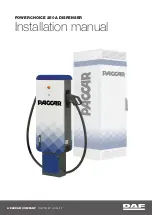
−
The National Highway Traffic Safety
Administration and Transport
Canada recommend that all children
age 12 and under be properly
restrained in a back seat.
Since this vehicle does not have a
back seat, we strongly recommend
that you do not carry any child who
is not large enough or mature
enough to ride in front (see
page
).
Airbags have been designed to help
protect adults in a moderate to
severe frontal collision. To do this,
the passenger’s airbag is quite large
and it can inflate with enough force
to cause very serious injuries.
If the vehicle seat is too
far forward, or the child’s head is
thrown forward during a collision, an
inflating passenger’s airbag can
strike the child with enough force to
kill or very seriously injure a small
child.
If a larger child must ride in
this vehicle, see
page
for
important guidelines on how to
decide when a child is ready to ride
in and how to properly protect the
child.
Even though your vehicle has an
advanced airbag system, which can
automatically turn the passenger’s
airbag off (see
page
), please
follow the guidelines below.
If the airbag inflates, it
can hit the back of the child seat
with enough force to kill or very
seriously injure an infant.
38
38
24
Your Vehicle is Not
Recommended f or Child
Passengers
The Passenger’s Airbag Pose
Serious Risks
Small Children
Placing a f orward-f acing child seat in
the passenger’s seat can be
hazardous.
Children who have outgrown child
seats are also at risk of being injured
or killed by an inf lating passenger’s
airbag.
Larger Children
Never put a rear-f acing child seat in
this vehicle.
Inf ants
Protecting Children
General Guidelines
Dr
iv
er
and
P
asseng
er
Saf
e
ty
29
05/08/29 17:55:34 31S2A660 0032
Main Menu
Table of Contents
▲
▼
















































